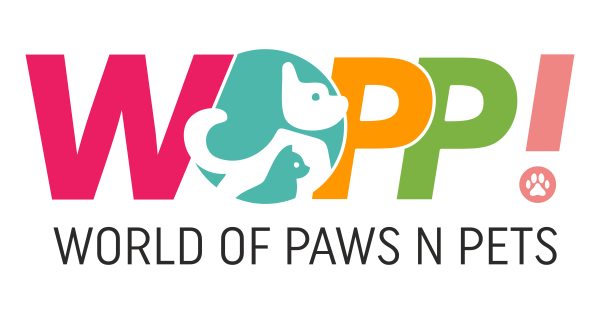What is puppy socialisation?
Puppy socialisation is the learning process wherein a puppy learns and develops key life skills essential for a happy and confident dog. The socialisation process teaches puppies how to behave in new situations, environments, and with new people or animals. The key to successful puppy socialisation is to expose them to positive experiences as soon as possible. These can vary from meeting new people, going for a car ride or interacting with other dogs, and many more.
Very similar to a young child, a puppy needs to be taught how to navigate their new environment with behaviour appropriate to the situation. This is done, to prevent or minimise fear-based behaviour later in life.
Why is puppy socialisation important?
A well-socialised puppy becomes a confident, happy, well-behaved dog. The more comfortable your puppy is, with a wider range of environments and situations, the less likely they are to become anxious or scared in unfamiliar environments. Anxious or scared dogs tend to display aggressive behaviours such as biting and growling, out of fear. Neglecting socialisation can lead to poorly-behaved dogs and sometimes dangerous situations in the future.
Ever wonder why a dog is barking at nothing for hours on end? Why do two dogs go after each other when they meet on the street? It could be due to poor socialisation.
What are the signs of a poorly socialised puppy?
- Growling
- Biting
- Excessive barking
- Reluctance to play or go outside
- Cowering in response to other people or dogs
- Shaking or stressed out in public places
If you meet a puppy exhibiting these signs of poor socialisation, they are likely to be scared and/or stressed. Do not yell at them or raise your voice, stay calm and back away slowly.
What’s the socialisation schedule for puppies?
Although socialisation never stops, the first three months of a puppy’s life are the best age for socialisation, as well as their development. 3-6 weeks: Puppies start acknowledging and approaching people. If handling them, be gentle and hold them safely to start fostering a positive experience.6-8 weeks: Puppies remain with their mother and littermate until this age to ensure a healthy relationship with them. It is around this age that puppies are adopted and brought home and adjust to new places, people and experiences, making this a turning point for socialisation.8-12 weeks: This is the age when fears begin to emerge, and requires patience and training to overcome. Over 12 weeks: Socialisation is a lifelong process. Even the most socialised dog requires constant interaction with different people and environments to reinforce their learned behaviours.
Every puppy is different and learns at a different pace depending on their breed and unique disposition.
Understanding puppy socialisation before complete immunisation
Immunisation, i.e. the entire vaccination process for young puppies over the first few weeks of life, is critical since their immune system isn’t strong enough to protect them from common viral diseases of dogs. However, this is also a critical period for puppy socialisation when they are open to new experiences, usually up to around 16 weeks of age.
But does that mean your puppy cannot go outside before the vaccinations are completed? Absolutely not. There are several safe opportunities for puppy socialisation during this critical period.
Some of the best ways to socialise a puppy are
- Invite friends and family over. Children, adults, men, women, delivery persons, gardeners, etc – have your puppy see and experience these people in and around your home.
- Take your puppy to a friend’s place. This opens them up to new environments and new experiences.
- Puppy play-dates with healthy, vaccinated, puppy-friendly dogs to learn social behaviour and also to learn not to bite hard when playing.
- Short walks are beneficial. Avoid areas where there might be urine or faeces from other animals.
- Car rides to get used to the motion of a moving vehicle.
- Visit the vet clinic for just a general check up, to avoid a vet visit becoming stressful.
- Exposure to everyday items around the house such as loud noises from hairdryers, things that move oddly like people on crutches or skates, strange surfaces like manhole covers, sand, wooden flooring, different weather conditions, etc.
The Puppy Socialisation Training – Exposure Checklist
Start slowly, and introduce new experiences one at a time, giving your puppy enough time to adjust and acclimate to it. People – Infants, toddlers, teens, adults, old people, men/women, people of different ethnicities and races, big and small people, people wearing sunglasses, hoods, hats, backpacks, umbrellas, uniforms (police, medical, firefighter), using canes, crutches or wheelchairs.People doing things – running, throwing a ball, kneeling down in the garden, doing yoga, standing on ladders, carrying bags and boxes, vacuuming, etc.Animals – cats, horses, chicken, goat, any other animals your dog may meetThings that move – bicycles, skateboards, running children, kites, motorcycles, cars, trucks, fire engines, etc.New places – your car, the vet clinic, parks, beaches, shopping areas, pet stores, etcEveryday noises – blow dryers, kitchen appliances, vacuum cleaners, doorbells, children yelling, babies crying, wind and thunder noises, fireworks, etc.Different surfaces – grass, pavement, carpet, shiny floors, sand, wet surfaces, etc. Handling – handling for vet visits and grooming
Remember: Never force a scared puppy to deal with a new situation. Give them the space to come to terms with the fear on their own, otherwise they get overwhelmed and anxious. Comfort the puppy if they display any anxious or fearful behaviour.
Where do you avoid taking your new puppy?
- Off-leash dog parks, until full vaccination is completed.
- Places where the puppy may encounter street dogs/sick dogs/aggressive dogs.
- Places where the puppy may encounter aggressive/drunk humans.
- Places with an accumulation of faeces of unknown dogs.
- Places where puppies would be left unattended, or in a hot car.
- Places where puppies will be uncomfortable or frightened.
- Places where you won’t be able to devote enough attention to the puppy’s safety and security.



